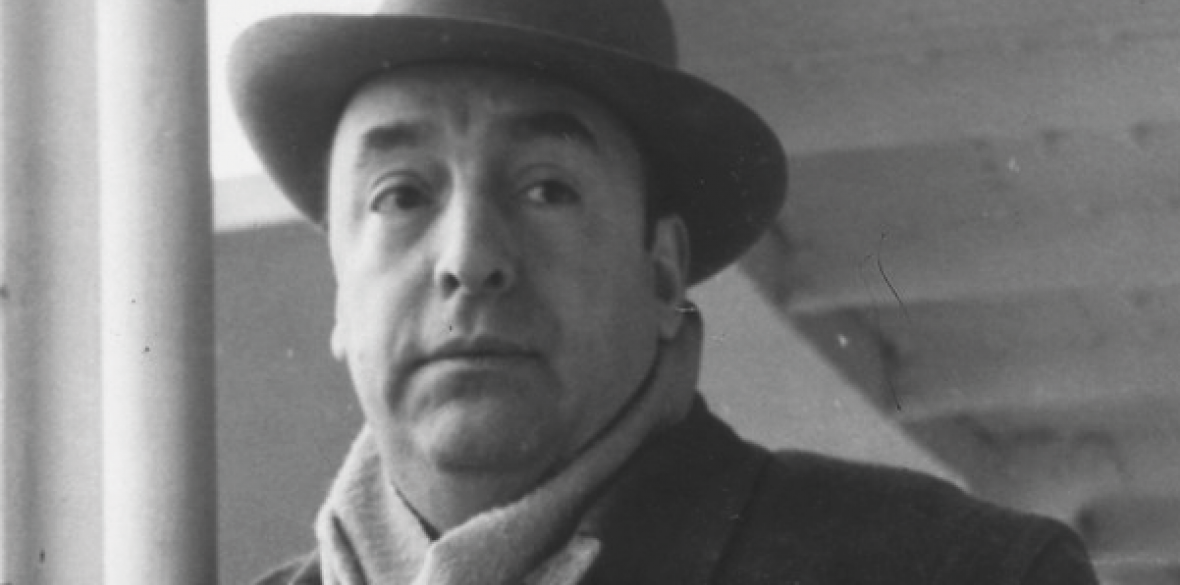This is the last article you can read this month
You can read more article this month
You can read more articles this month
Sorry your limit is up for this month
Reset on:
Please help support the Morning Star by subscribing here
AGED 32 and already a prolific poet, Pablo Neruda was a consul at the Chilean embassy in Madrid when in July 1936 Francisco Franco helped lead a revolt against Spain’s Popular Front government.
It was a defining moment for Neruda. His poetry would never be the same again. Nor would his politics. He gave vent to his feelings in I’m Explaining a Few Things, one of his greatest poems:
Treacherous
generals:
see my dead house,
look at broken Spain:
from every house burning metal flows
instead of flowers…
Devastated by the murder of his friend the playwright Federico Garcia Lorca, Neruda witnessed the merciless bombing of working-class districts of Madrid.
While Britain and France abandoned Spain, Neruda threw all his efforts behind efforts to assist the Spanish Republic’s resistance. He rallied support from writers and artists around the world and organised relief for refugees.
With only the USSR giving effective military assistance to Spain’s government and with the Spanish Communist Party in the vanguard of the anti-fascist struggle, Neruda joined the party. He remained a communist for the rest of his life.
His poetry – for which he received the Nobel Prize in literature in 1971 – changed radically as a result of the war. It moved away from flowery surrealism and acquired a harder, political edge.
In I’m Explaining a Few Things he tells us why:
And you’ll ask: why doesn’t his poetry
speak of dreams and leaves
and the great volcanoes of his native land?
Come and see the blood in the streets.
Neruda’s death 50 years ago on September 23 1973 at the age of 69 remains shrouded in controversy. It happened within hours of his discharge from hospital in Santiago and 12 days after the CIA-backed military coup against Chile’s socialist government headed by his friend Salvador Allende.
The plotters were led by General Augusto Pinochet, a staunch admirer of Franco.
Two years later, when Franco died, Pinochet was the only head of state who attended the funeral. Franco may have transformed himself from a classic jackbooted fascist dictator into an anti-communist hardman and ally of the US. But his blood-soaked record remained an embarrassment even to his new-found friends.
Pinochet had no such qualms. Chile’s new military junta soon began rounding up, murdering and torturing thousands of Allende’s supporters. The tactics followed the blood-soaked example set in Spain by Franco more than three decades earlier.
Many years later English playwright Harold Pinter vented the outrage still felt across the world by the events that unfolded in Neruda’s homeland. “The horror the United States inflicted upon Chile in 1973 can never be purged and can never be forgiven,” he said in 2005 when accepting the same Nobel Prize that Neruda had won.
The cause of Neruda’s death was officially given as prostate cancer. However, falling ill immediately after leaving hospital, he suspected he had been poisoned.
Ongoing investigations by forensic scientists since 2013, when his body was exhumed, have confirmed that he may have been injected with a laboratory-cultivated bacterium. Neruda’s family insist this was done by Pinochet’s agents.
Earlier this year an article in Science magazine reported that experts from Canadian and Danish universities have ruled out the possibility that the deadly toxin may have entered the body after he died. The probable cause of death, they suggest, was intentional poisoning.
However it happened, it was a very convenient death for Pinochet. Someone who would have been a high-profile opponent of his regime had been permanently silenced.
Except for his poetry. Harold Pinter made use of it when accepting his Nobel Prize. His speech came in the wake of the US and British invasion of Iraq two years earlier. Deadly aerial attacks on Iraqi towns were still going on.
Bandits with planes and Moors,
bandits with finger-rings and duchesses,
bandits with black friars spattering blessings
came through the sky to kill children
and the blood of children ran through the streets
without fuss, like children’s blood.
“Nowhere in contemporary poetry have I read such a powerful visceral description of the bombing of civilians,” Pinter told his audience in Stockholm.
Pinter’s words still ring true. I’m Explaining a Few Things tells us of Neruda’s political and poetic awakening, as well as testifying to Franco’s savagery. The poem reminds us too that in all likelihood Neruda ultimately paid the price for his beliefs at the hands of Pinochet, Franco’s greatest admirer.










